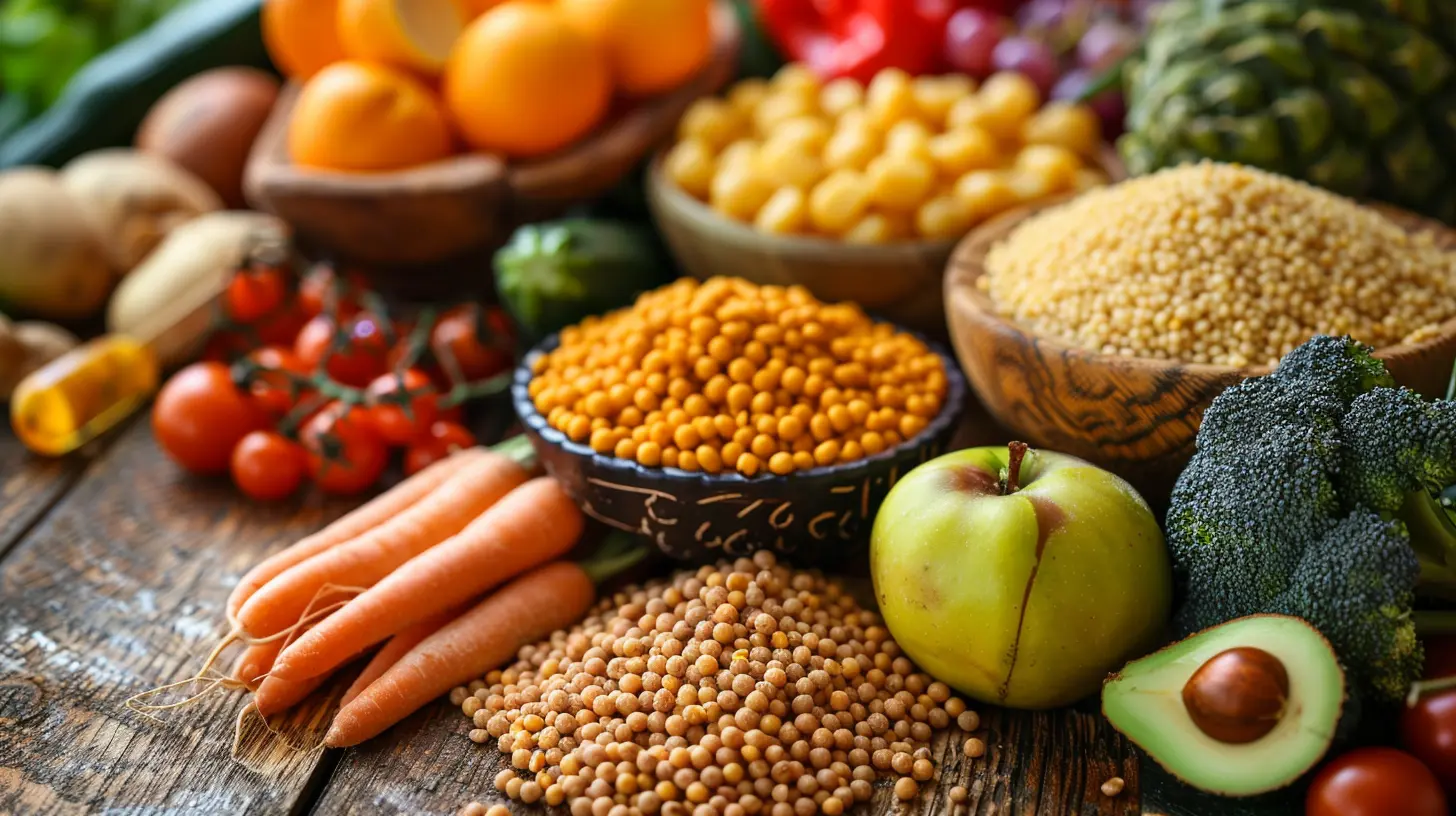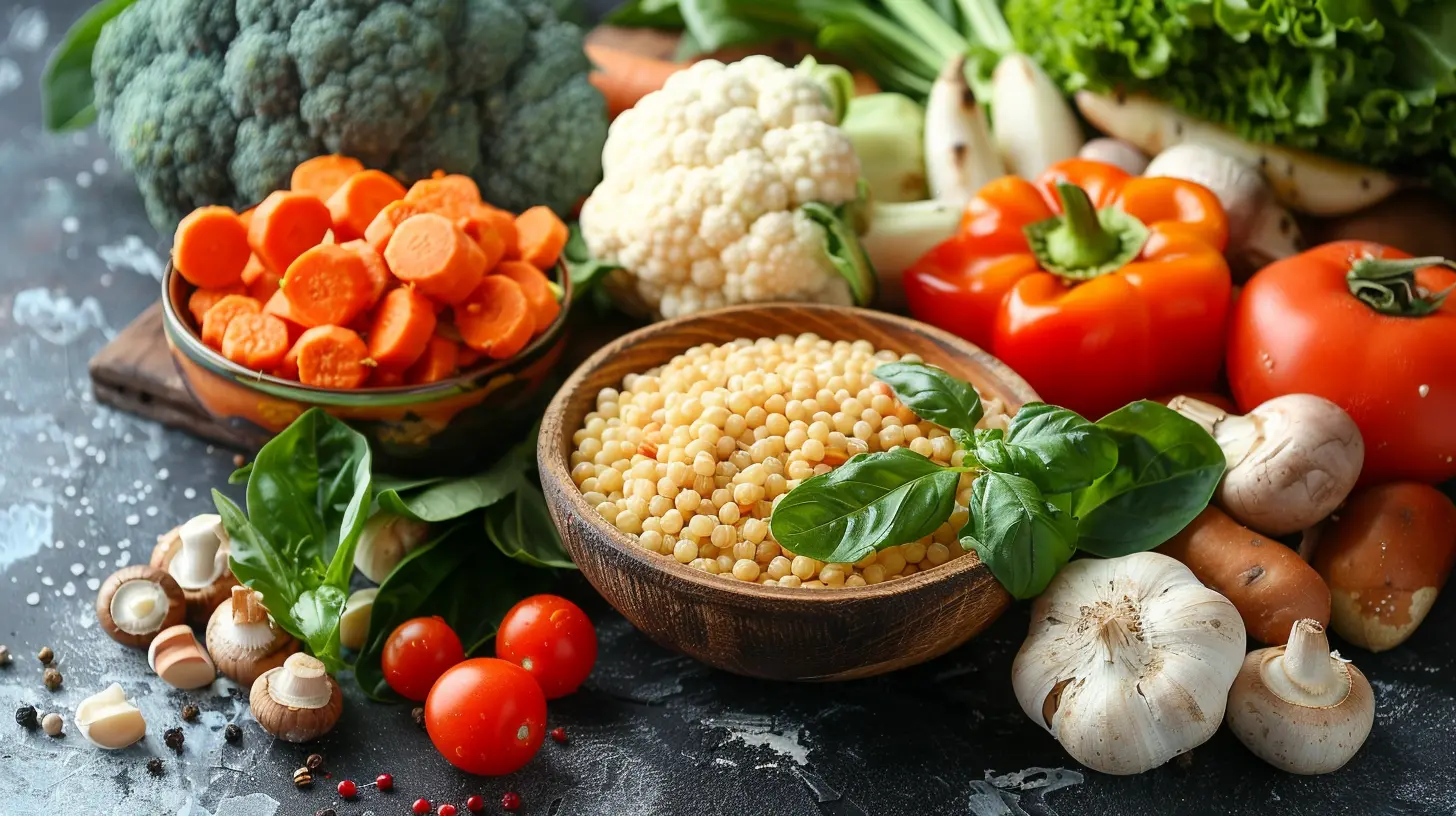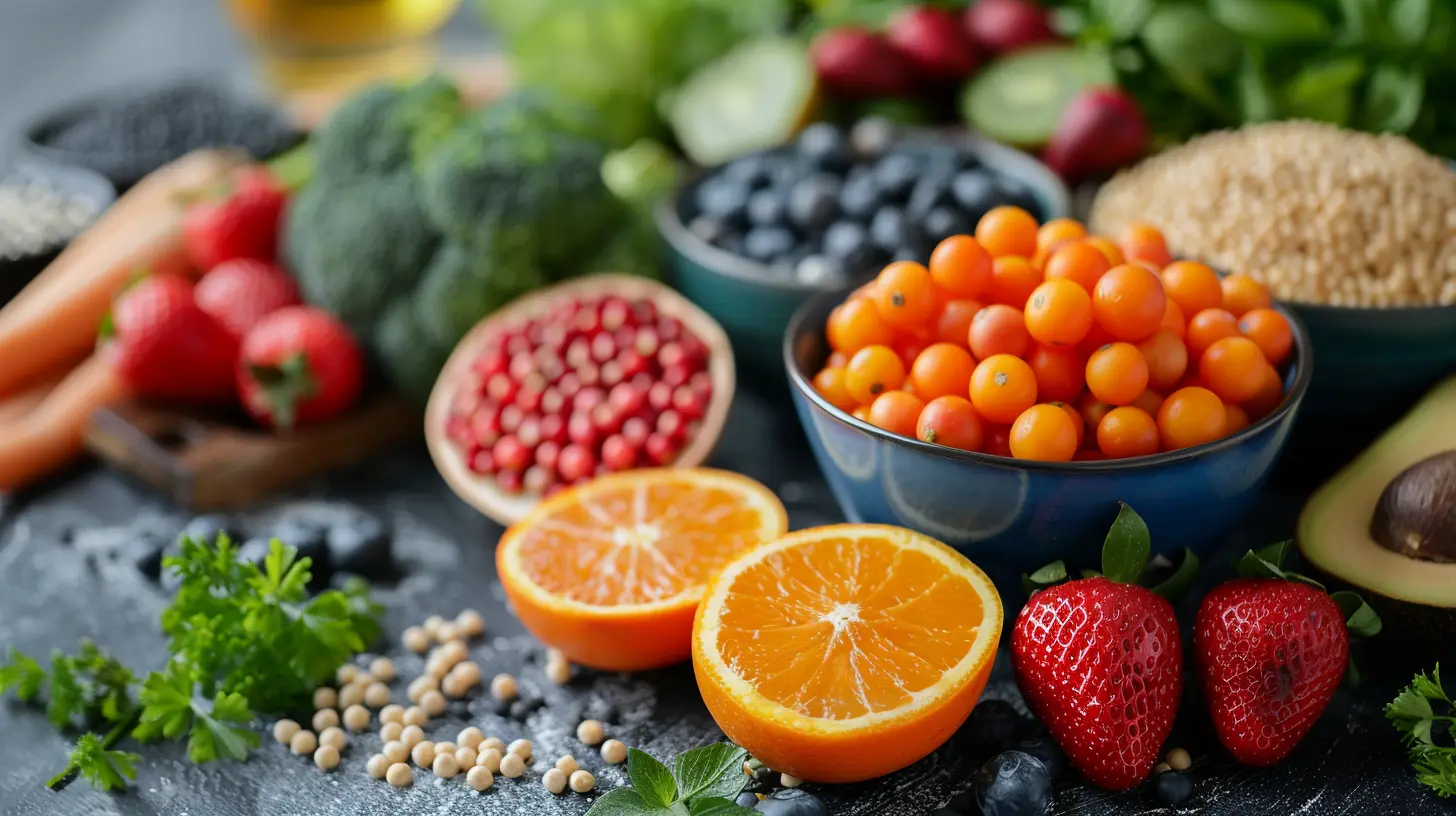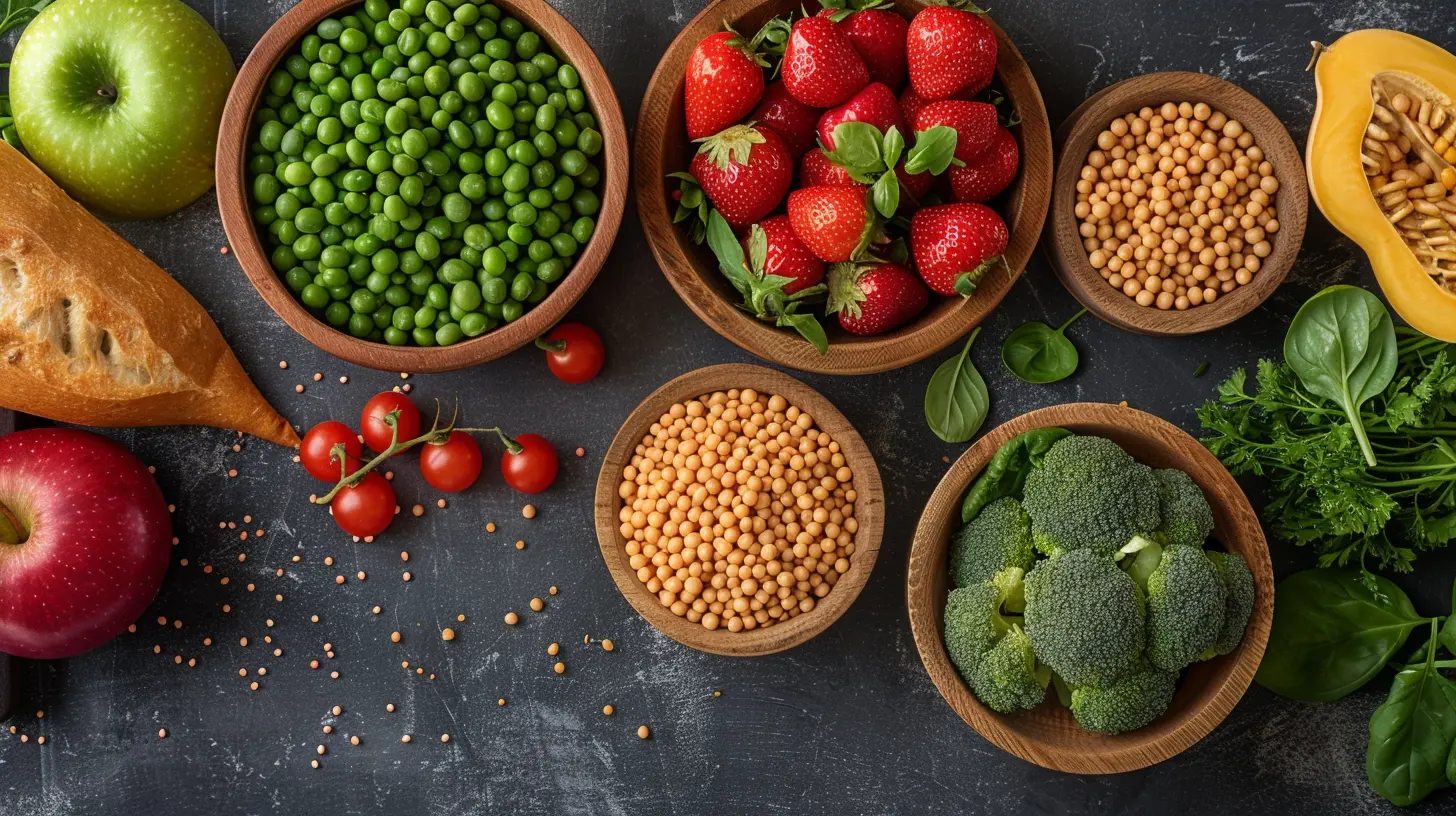The Importance of Fiber in Reducing the Risk of Colon Cancer
18 September 2025
Introduction
Did you know that what you eat can significantly impact your chances of developing colon cancer? Colon cancer is one of the most common types of cancer worldwide, but the good news is that diet plays a crucial role in preventing it. One of the most powerful dietary defenses against colon cancer is fiber.
Fiber doesn’t just help keep your digestion smooth; it has a profound effect on overall gut health, supports weight management, and even lowers cancer risk. So, let’s dive deep into why fiber is so important in reducing the risk of colon cancer and how you can easily incorporate more of it into your daily diet. 
What Is Fiber?
Fiber is a type of carbohydrate that the body can’t digest. Unlike fats, proteins, and other carbs that get broken down and absorbed, fiber passes through your digestive system mostly intact. This helps it perform a variety of important functions, especially in maintaining gut health.There are two main types of dietary fiber:
1. Soluble Fiber – This type dissolves in water and forms a gel-like substance in your gut. It helps lower cholesterol levels and regulates blood sugar. Foods high in soluble fiber include oats, beans, apples, and carrots.
2. Insoluble Fiber – This type does not dissolve in water. Instead, it adds bulk to stool and helps move waste through the digestive tract more efficiently. Whole grains, nuts, and most vegetables contain insoluble fiber.
Both types are essential, and a balanced diet should include a mix of both for optimal digestive and overall health. 
How Does Fiber Reduce the Risk of Colon Cancer?
Now, let's get to the heart of the matter—how exactly does fiber help protect against colon cancer? Here are some key ways:1. Promotes Healthy Bowel Movements
A sluggish digestive system can lead to prolonged exposure of harmful substances to the colon lining. High-fiber foods help keep your bowel movements regular, reducing the time waste sits in your colon. This minimizes the risk of toxins damaging the colon lining and forming polyps, which can turn cancerous over time.2. Feeds Healthy Gut Bacteria
Your gut is filled with trillions of bacteria, both good and bad. A fiber-rich diet promotes the growth of beneficial bacteria, which ferment fiber in the colon and produce short-chain fatty acids (SCFAs). SCFAs, particularly butyrate, have been shown to reduce inflammation and even suppress the growth of cancer cells.3. Reduces Inflammation
Chronic inflammation is a leading cause of various diseases, including cancer. Fiber helps combat inflammation by encouraging the production of anti-inflammatory compounds in the gut. This keeps your colon environment balanced and lowers the chances of abnormal cell growth.4. Supports Weight Management
Being overweight or obese is a known risk factor for colon cancer. Fiber helps with weight control by promoting satiety, meaning you feel fuller for longer. High-fiber foods slow digestion, reducing cravings and preventing overeating—both crucial for maintaining a healthy weight.5. Lowers The Risk of Insulin Resistance
Insulin resistance and high blood sugar levels can contribute to abnormal cell growth. A diet rich in fiber helps regulate blood sugar levels and improves insulin sensitivity, reducing the risk of conditions that may contribute to colon cancer.6. Binds to Harmful Substances in The Colon
Fiber acts like a sponge, binding to toxins, excess hormones, and carcinogenic substances in the digestive tract. It helps these substances move through the intestines quickly, reducing their potential to cause harm to colon cells.
Best High-Fiber Foods to Include in Your Diet
If you're wondering how to increase fiber intake, don’t worry—there are plenty of delicious and nutritious options. Here are some of the best fiber-rich foods to start adding to your meals:1. Whole Grains
- Brown rice- Quinoa
- Whole wheat bread
- Oatmeal
- Barley
2. Legumes and Beans
- Lentils- Chickpeas
- Black beans
- Kidney beans
- Peas
3. Fruits
- Apples (with skin)- Pears
- Berries (strawberries, raspberries, blueberries)
- Oranges
- Bananas
4. Vegetables
- Broccoli- Carrots
- Brussels sprouts
- Spinach
- Sweet potatoes
5. Nuts and Seeds
- Almonds- Chia seeds
- Flaxseeds
- Sunflower seeds
- Walnuts
Adding these foods to your daily diet can make a significant difference in your overall health and help protect against colon cancer. 
How Much Fiber Do You Need?
The recommended daily fiber intake varies based on age and gender:- Women (under 50 years old): 25 grams per day
- Women (over 50 years old): 21 grams per day
- Men (under 50 years old): 38 grams per day
- Men (over 50 years old): 30 grams per day
Unfortunately, most people consume far less than the recommended amount. On average, people only eat around 15 grams of fiber per day! This is why it’s essential to be mindful of your fiber intake.
Tips for Increasing Fiber Intake
If you're not used to eating a lot of fiber, don’t worry—it’s easy to make small, sustainable changes that add up over time. Here are a few simple tips:1. Start Your Day with Whole Grains
Swap out refined grains for whole grains. Instead of white bread, go for whole wheat. Instead of sugary cereals, try oatmeal.2. Snack on Fruits & Nuts
Instead of reaching for chips or processed snacks, munch on almonds, walnuts, or a piece of fruit.3. Add More Veggies to Your Meals
Try incorporating vegetables into every meal. Add spinach to your eggs, throw extra veggies in your pasta, or enjoy a side salad.4. Go for Legume-Based Dishes
Soups, salads, or stir-fries with lentils or beans are excellent ways to get more fiber.5. Stay Hydrated
Fiber works best when paired with adequate water intake. Always drink plenty of fluids to avoid bloating or digestive discomfort.Conclusion
Fiber is an unsung hero when it comes to preventing colon cancer. Not only does it keep your digestive system running smoothly, but it also supports good gut bacteria, reduces inflammation, and eliminates harmful toxins from the body.If you want to take proactive steps toward colon cancer prevention, start making fiber a priority in your diet. The best part? It’s not difficult—simple switches like eating more whole grains, adding legumes to meals, and increasing fruit and vegetable intake can make a world of difference.
So, why wait? Your gut (and overall health) will thank you for it!
all images in this post were generated using AI tools
Category:
Fiber Rich DietAuthor:

Holly Ellison
Discussion
rate this article
1 comments
Oren McAllister
Great article! It's amazing how something as simple as fiber can make such a difference in our health. I'm definitely inspired to add more fiber-rich foods to my diet—who knew it could be a tasty defense against colon cancer?
October 13, 2025 at 4:45 PM

Holly Ellison
Thank you for your positive feedback! I'm glad to hear you're inspired to add more fiber to your diet—it's a delicious way to boost health!


